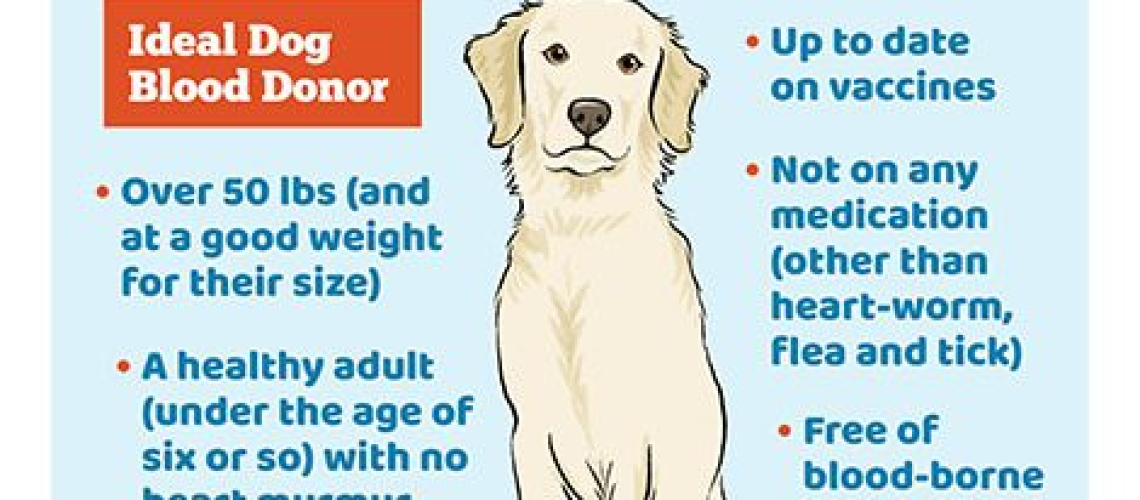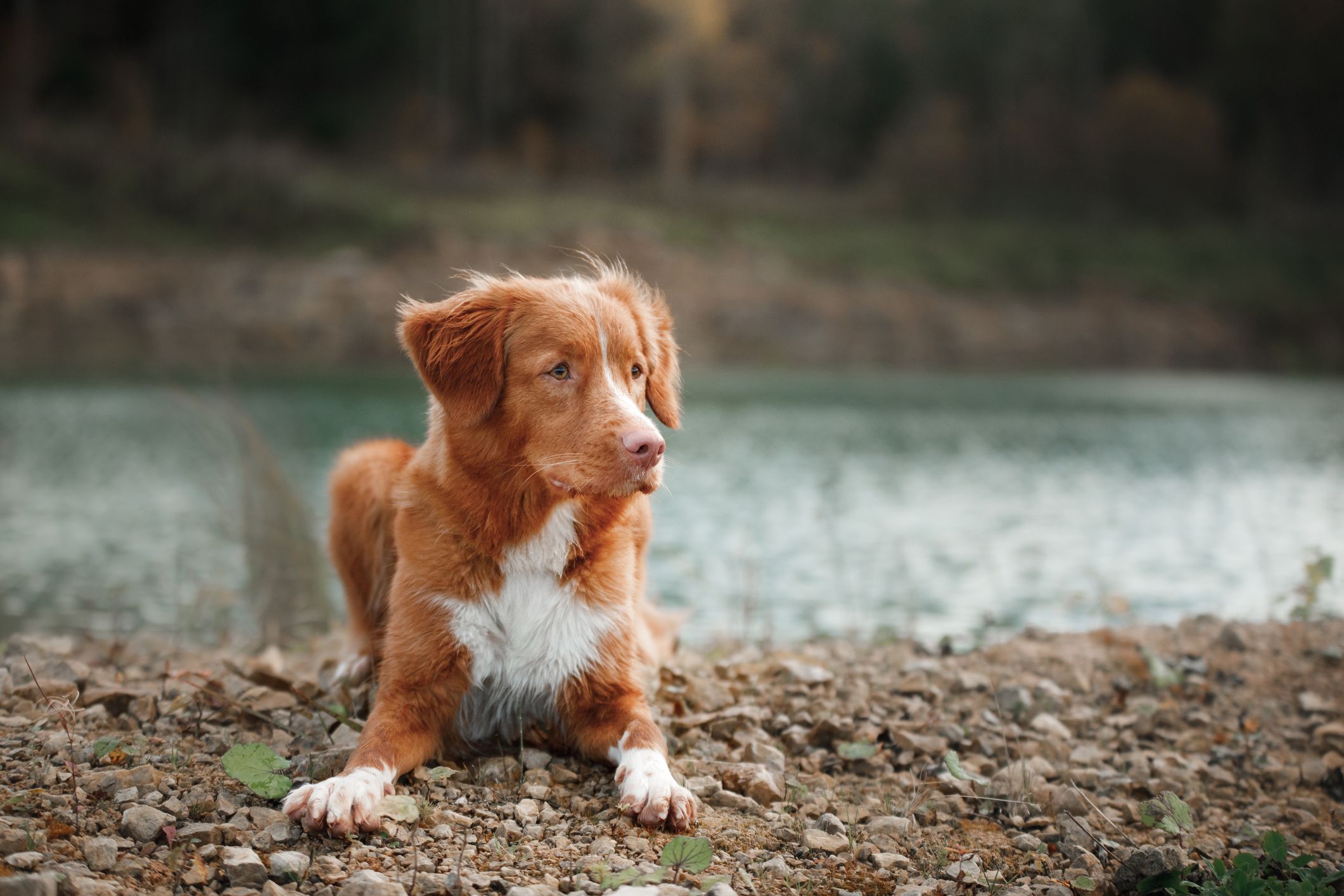Dog Blood Types: Understanding Canine Blood Types and Their Importance in Veterinary Medicine
In the world of veterinary medicine, understanding dog blood types is crucial. Just like humans, dogs have different blood types that play a significant role in their health and well-being. This article delves into the importance of canine blood types, shedding light on how they are determined and why they matter in various medical procedures.
Key Takeaways:
- Dog blood types are categorized into different groups based on the presence or absence of certain antigens on red blood cells.
- The most common dog blood type is DEA 1.1 positive, followed by DEA 1.1 negative.
- Knowing a dog's blood type is crucial for transfusions to ensure compatibility and prevent adverse reactions.
- Transfusion reactions can occur if a dog receives blood from an incompatible donor, leading to potentially life-threatening complications.
- Blood typing dogs before surgery or in emergency situations can help veterinarians make informed decisions regarding transfusions and treatment options.
What are blood types and why are they important for dogs?
Blood types are classifications that determine the specific characteristics of a person or animal's blood. In dogs, there are different blood types, just like in humans. These blood types are important because they play a crucial role in determining compatibility for blood transfusions.
Dogs have several different blood types, but the most common ones are Dog Erythrocyte Antigen (DEA) 1.1, DEA 1.2, DEA 3, and DEA 4. Each blood type has its own unique set of antigens on the surface of red blood cells.
Knowing a dog's blood type is vital when it comes to transfusions because if a dog receives the wrong type of blood, it can lead to a dangerous reaction called a transfusion reaction. This can cause severe illness or even death in some cases.
The different blood types in dogs and their names
In dogs, there are several different blood types that have been identified:
- DEA 1.1: This is the most common and important blood type in dogs. It is further divided into positive (+) and negative (-) subtypes.
- DEA 1.2: This is another commonly found blood type in dogs.
- DEA 3: This is a less common blood type but still important for transfusions.
- DEA 4: This is also a less common blood type but can still be significant in certain situations.
Can any dog receive blood from another dog regardless of their blood type?
No, not all dogs can receive blood from any other dog regardless of their blood type. Dogs must have compatible or matching blood types in order to receive a blood transfusion safely.
For example, dogs with DEA 1.1 negative (-) blood can only receive blood from other dogs with DEA 1.1 negative (-) blood. Similarly, dogs with DEA 4 positive (+) blood can only receive blood from other dogs with DEA 4 positive (+) blood.
If a dog receives incompatible blood, their immune system can recognize the foreign antigens on the red blood cells and mount an immune response against them. This can lead to a severe reaction that can be life-threatening for the dog.
Why matching blood types is crucial before a dog transfusion
Matching blood types before a dog transfusion is crucial because it helps prevent transfusion reactions and ensures the safety of the recipient dog.
When a dog receives a transfusion, the donor's red blood cells are introduced into the recipient's bloodstream. If these red blood cells have different antigens than what the recipient has, their immune system will recognize them as foreign and attack them.
This immune response can cause symptoms such as fever, chills, vomiting, jaundice (yellowing of the skin), and even organ failure. In severe cases, it can be fatal.
Are certain dog breeds more likely to have specific blood types?
While there is no direct correlation between specific dog breeds and specific blood types, certain breeds may have higher frequencies of certain blood types due to genetic factors.
For example, Greyhounds are known to have a higher prevalence of DEA 1.1 negative (-) blood type compared to other breeds. On the other hand, Doberman Pinschers are more likely to have DEA 1.1 positive (+) or DEA 4 positive (+) blood type.
However, it is important to note that blood type distribution can still vary within individual breeds, and it is not solely determined by breed. Therefore, it is necessary to determine the blood type of each individual dog before a transfusion.
How veterinarians determine a dog's blood type
Veterinarians determine a dog's blood type through a simple blood test. The most common method used is called tube agglutination.
In this test, a small sample of the dog's blood is mixed with different reagents that contain antibodies specific to each blood type. If the red blood cells clump together (agglutinate) in response to a particular reagent, it indicates that the dog has that specific blood type.
The test can be done in-house at veterinary clinics or sent to specialized laboratories for analysis. It usually takes only a short time to obtain the results.
Do dogs with different blood types experience specific health issues or symptoms?
Dogs with different blood types do not typically experience specific health issues or symptoms solely based on their blood type. Blood types primarily affect compatibility for transfusions rather than causing direct health problems.
However, if a dog receives an incompatible transfusion due to mismatched blood types, they can develop severe reactions as mentioned earlier. These reactions can lead to various symptoms such as fever, weakness, pale gums, rapid breathing or heartbeat, and collapse.
If you notice any concerning symptoms after your dog receives a transfusion, it is important to contact your veterinarian immediately for further evaluation and treatment.
Special considerations when performing a blood transfusion between dogs with different blood types
Performing a blood transfusion between dogs with different blood types requires special considerations and precautions to ensure the safety of the recipient dog.
One option is to use universal donor blood, which is DEA 1.1 negative (-) blood. This blood type can be safely transfused into most dogs without causing a transfusion reaction. However, it is still important to cross-match the donor and recipient blood before a transfusion to minimize any potential risks.
In cases where universal donor blood is not available or suitable, veterinarians must carefully match the blood types of the donor and recipient dogs to avoid compatibility issues. This involves performing a thorough blood typing test and cross-matching between the donor and recipient prior to the transfusion.
Can dogs develop antibodies against certain blood types from multiple transfusions?
Yes, dogs can develop antibodies against certain blood types if they receive multiple transfusions that do not match their own blood type.
When a dog receives a transfusion with incompatible blood, their immune system recognizes the foreign antigens on the red blood cells and produces antibodies against them. These antibodies can remain in the dog's system even after the initial reaction has resolved.
If the dog requires future transfusions, these antibodies can cause an accelerated immune response upon subsequent exposure to incompatible blood types. This can lead to more severe reactions and complicate finding compatible donors for future transfusions.
Special considerations when performing a blood transfusion between dogs with different blood types
Blood typing and crossmatching
When performing a blood transfusion between dogs with different blood types, it is crucial to determine the blood type of both the donor and recipient. This can be done through blood typing, which involves identifying the presence or absence of specific antigens on red blood cells. The most common canine blood types are DEA 1.1 positive, DEA 1.1 negative, DEA 4 positive, and DEA 7 positive. It is important to match the donor's blood type with the recipient's to minimize the risk of adverse reactions.
In addition to blood typing, crossmatching should also be performed before a transfusion. Crossmatching involves mixing a small amount of the donor's blood with the recipient's plasma to check for any potential reactions. This step helps identify if there are any antibodies present in the recipient's plasma that could cause a severe immune response when exposed to certain antigens in the donor's blood.
Preventing hemolytic reactions
One major concern when performing a blood transfusion between dogs with different blood types is the risk of hemolytic reactions. Hemolysis occurs when antibodies in the recipient's plasma attack and destroy red blood cells from an incompatible donor. To prevent this, it is essential to select a compatible donor based on their blood type and perform crossmatching.
If a compatible donor cannot be found, an alternative option is using universal donor blood. Greyhounds are often considered universal donors as they have lower levels of naturally occurring antibodies against other dog breeds' red blood cells. However, even with universal donors, crossmatching should still be performed to ensure compatibility.
To further reduce the risk of hemolytic reactions, it may be necessary to administer immunosuppressive drugs prior to transfusion in cases where the recipient has previously received multiple transfusions or has developed antibodies against certain blood types.
Overall, careful blood typing, crossmatching, and selecting compatible donors are crucial steps in performing a successful blood transfusion between dogs with different blood types to minimize the risk of adverse reactions.
Can dogs develop antibodies against certain blood types from multiple transfusions?
Development of alloantibodies
Yes, dogs can develop antibodies against certain blood types from multiple transfusions. When a dog receives repeated transfusions from incompatible donors, their immune system may recognize the foreign antigens on the donor's red blood cells and start producing alloantibodies. Alloantibodies are antibodies that target specific antigens found on red blood cells that differ from the dog's own blood type.
Risks and complications
The development of alloantibodies can lead to severe hemolytic reactions if the dog is subsequently transfused with blood from a donor carrying those targeted antigens. These reactions can cause rapid destruction of red blood cells, leading to anemia, jaundice, organ damage, and even death if not promptly treated.
To mitigate these risks, it is important to keep detailed records of a dog's previous transfusions and identify any potential sensitization to specific blood types. This information can help determine suitable donors for future transfusions and reduce the likelihood of adverse reactions.
It is also worth noting that not all dogs will develop alloantibodies after multiple transfusions. The risk varies among individuals based on factors such as their immune system response and previous exposure to incompatible blood types.
In conclusion, while dogs can develop antibodies against certain blood types from multiple transfusions, proper monitoring of a dog's medical history and careful selection of compatible donors can help prevent or minimize the risk of complications associated with alloantibody development.
| Dog Blood Type | Conclusion |
|---|---|
| Type A | Dogs with Type A blood are the most common and can generally receive blood transfusions from other Type A dogs. |
| Type B | Type B blood is less common, and dogs with this blood type can receive transfusions from other Type B dogs. |
| Type AB | Dogs with Type AB blood are considered universal recipients as they can receive transfusions from any blood type. |
| Type DEA 1.1 negative (DEA -) | This rare blood type is important for dog donors as it can be given to any dog regardless
How many types of dog blood are there?There have been more than 13 different blood groups identified in dogs, but the international standards only recognize eight of them, known as DEA types. There are typing serums available for six of the DEA types: 1.1, 1.2, 3, 4, 5, and 7, which are produced through canine alloimmunization. Can a human give blood to a dog?Not all blood is identical, and there are various distinctions between different species. This implies that human blood cannot be transferred to pets. Interestingly, the first documented successful blood donation was not between humans, but between dogs. Can humans receive animal blood?In 1667, Frenchman Jean-Baptiste Denis conducted the first recorded animal to human blood transfusion, transferring blood from a sheep to a 15-year old boy and a woman in labor. While both individuals survived the procedure, they experienced severe anemia, which raised doubts about the effectiveness of this technique. Is there a golden blood type?Rh-null is a highly uncommon blood type, with fewer than 50 individuals worldwide possessing it. It is often referred to as "golden blood" due to its rarity. What is your rarest blood type?What is the least common blood type? AB negative is the least common among the eight primary blood types, with only 1% of our donors having it. Despite its rarity, the demand for AB negative blood is not high, so finding donors with AB negative blood is not a challenge. However, there are certain blood types that are both rare and in high demand. What is a pure blood dog?Dogs that come from parents and ancestors of the same breed are known as purebred dogs. This means that the five generations of dogs all come from the same family tree and meet the standards of a specific breed.
More Reads
Dr. Clara Bennett
Hello, fellow pet enthusiasts! I'm Dr. Clara Bennett, your go-to expert on all things pets. With a background in veterinary medicine and a passion for nutrition, I've spent years diving deep into the world of cats, dogs, birds, horses, and the products that keep them thriving. From the English countryside, I've witnessed the magic of animals and am here to share my knowledge, ensuring your pets receive the best care. Together, let's master the art of pet care!
All Posts »
Next Steps In Mastering Cat CareNext Steps In Mastering Dog CareJoin Our NewsletterSubscribe to receive our latest updates in your inbox! |
















